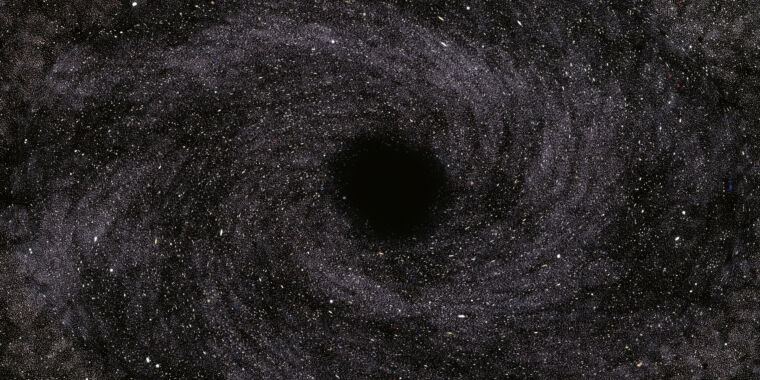
If I give you two black holes with the exact same mass, charge, and spin, you wouldn’t be able to tell them apart.
This also means that when you see a fully formed black hole, you have no idea what made it.No information about the original material that created the black hole survives.
In physics, the concept of information is tightly linked to our understanding of how physical systems evolve and how we construct our theories of physics.
If I give you a list of all the information about a system, I should be able to apply my laws and theories of physics to tell you how that system will evolve.
If our theories of physics didn’t have these properties, we wouldn’t be able to get much work done.
In the traditional, classical view of black holes, all this business about information is not a problem at all.The information that went into building the black hole is simply locked away behind the event horizon—the one-way boundary at the black hole’s surface that makes it so unique.
Whether the black hole was formed from dying stars or squashed kittens, it doesn’t practically matter.